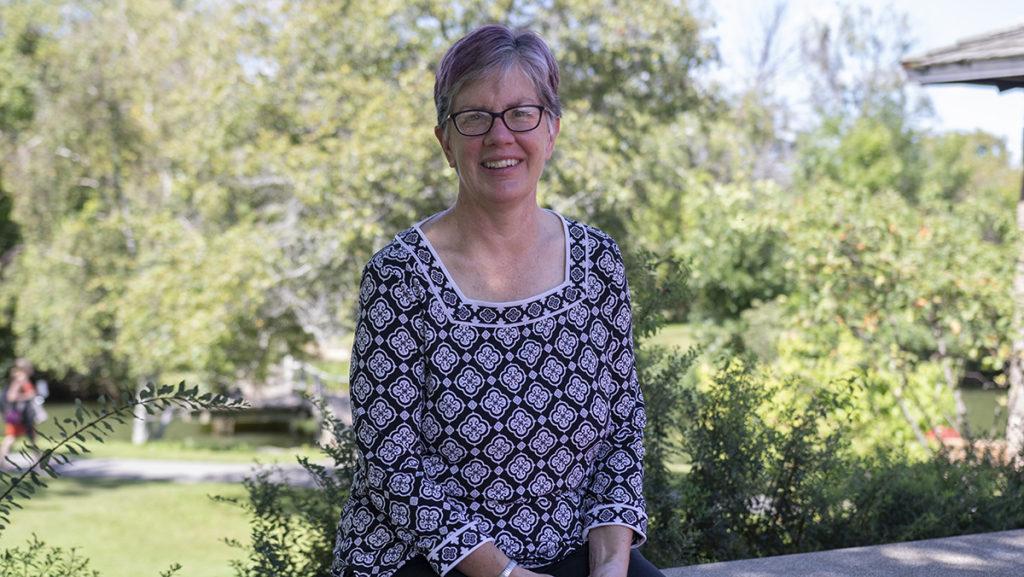Just about every Monday, Wednesday and Friday during the semester, you can find me at noon sitting in the main gathering space in Muller Chapel. Sometimes I will be sitting in the front leading meditation, sometimes I will be sitting on a riser while someone else guides a meditation practice. If there are only a few of us, we might be sitting together in silence.
This has been my routine for the past three years, as a member of a group of staff and faculty — myself, Julia Lapp, associate professor and chair of the Department of Health Promotion and Physical Education; Kathryn Caldwell, associate professor in the Department of Psychology; Laura Amoriello, assistant professor in the Department of Music Performance; and Diana Dimitrova, director of international student and scholar services in the Office of International Programs and Extended Studies — who have hosted open meditation sessions during the fall and spring semesters. Last year we held these on Zoom.
Typically we offer some version of seated meditation practice, offering ourselves the chance to ground ourselves in our bodies, to notice our breath, to offer goodwill to ourselves and others. Many people do these practices on their own, perhaps using apps or guided meditations available on the internet. If we can do these practices on our own, why do we show up to do them together?
Speaking for myself, there are a number of reasons why I continue to participate in this effort.
First, Muller Chapel is a lovely space. Moving my practice to a space that’s not also a place where I work, eat or sleep is powerful for me. I enter the space knowing that my purpose there is to remember the incredible opportunity of my human life.
Second, the schedule keeps me accountable. We all know that just because we can do our practice or work or exercise at any time or location, doesn’t mean that we will follow through. It’s taken me years to settle into a consistent meditation practice and just like going to the gym, it works best when done consistently. So I show up for those noon hours.
Mostly I show up because there is something powerful about being in a community. Sitting together is a reminder that all of us are working with this very interesting human experience, this fascinating human mind. All of us, regardless of characteristics like age and gender that seem so relevant in our everyday lives, experience moments of mindfulness when we feel connected to ourselves and to the world and moments of mindlessness where we experience disconnection. Through meditation, we can develop the capacity to see what gets in the way of connecting to ourselves and others.
Without a doubt, taking this time to meditate benefits my mental health. At a minimum, after a half-hour, I have taken a step back from day-to-day stresses. As those half–hours accumulate, I am better at watching difficult emotions come and go.
We are all living in a time of great uncertainty. In addition, students are at a life stage that is full of transitions and uncertainty and I hope that our meditation sessions can help support students’ mental health. Many of us need additional support for mental health — therapy, medication, exercise — but taking time to “remember the present” can also help.
Perhaps you have never meditated before. Perhaps you had a high school teacher who led meditation a few times. Or perhaps you have a long-standing practice of your own. Regardless of your level of experience, we can come together to practice. We invite you to join us!














